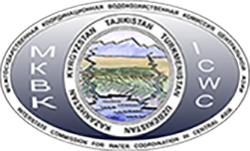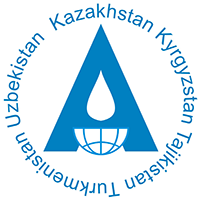International Fund for Saving the Aral Sea
Aral Sea Basin Programs
The Aral Sea Basin Program (ASBP) is the main long-term program of action in the region for sustainable development, including water resources management and environmental protection. The development of programs and monitoring of its implementation is a priority of the Executive Committee of IFAS. The program includes national and regional projects aimed at rehabilitation and sustainable development in the Aral Sea region.
During the existence of the IFAS, the following programs were prepared and partially implemented:
First Aral Sea Basin Program (ASBP-1): 1995-2001
Second Aral Sea Basin Program (ASBP-2): 2002-2010
Third Aral Sea Basin Program (ASBP-3): 2010-2015
Fourth Aral Sea Basin Program (ASBP-4): 2020-2030
First Aral Sea Basin Program, 1995-2001
The ASBP-1 was implemented in 1995-2003 under the umbrella of the International Fund for Saving the Aral Seaestablished in 1993.
During the first stage of ASBP-1, nine programs were implemented with technical and financial assistance of the World Bank:
1. Regional water management strategy.
2. Improved efficiency of water resources management and ensuring the sustainability of dams and reservoirs.
3. Hydrometeorological services and the regional environmental information system.
4. Water quality management, Drainage program in Uzbekistan.
5. Restoration of wetlands and regulation of the Amu Darya and Syr Darya flows.
6. Clean water and health.
7. Water Management in the upper catchment.
8. Automation of water infrastructure.
9. Capacity building.
The total cost of these programs was 60.8 million US dollars, of which only 22.25 million US dollars were attracted and disbursed with the assistance of the World Bank.
As a second stage of the ASBP-1, a project on water and environmental management was implemented in 1998-2003, which was funded by the Global Environment Facility, the Governments of the Netherlands and Sweden.
The total project budget amounted to 21.5 million US dollars, including 4.1 million US dollars – due to the countries of Central Asia.
The project has implemented six components:
Component A «Water resources management and water and soil salinity control» – The goal of the component is to develop regional and national scenarios and strategies for sustainable water management and its allocation with environmental consideration in the Syrdarya and Amudarya rivers basins and assist decision-makers in five countries in preparation of the mid-and long-term water management agreements.
Component B «Public awareness» – The goal of the component is to assist in public awareness and understanding of the need to save water, raising respect for water and contributing to change consumers’ attitude to water.
Component C «Dams and reservoirs safety management» – The goal of the component is to evaluate the safety of dams in the region; upgrading monitoring and warning systems on individual dams based on pilot projects; and drafting emergency measures on dam restorations.
Component D «Monitoring of transboundary waters» – The goal of the component is to build capacity for monitoring by independent bodies of qualitative and quantitative parameters of river flow on 37 transboundary water measuring structures.
Component E «Restoration of wetlands» – The goal of the component is to restore wetlands of Lake Sudoche, which is a nesting place of declining species of migratory birds.
Component F «Project Management Support»
Water and Environment Management Project was completed on October 31, 2003 by the decision of the Board of IFAS.
A large-scale project «Regulation of the Syrdarya River and Preservation of the Northern Aral Sea» (PRSSAM-1) was implemented in the Kazakhstani part of the Aral Sea region under the ASBP-1. The start of the project was in November 2002. The project was financed by the World Bank’s loan amounting 64.5 million US dollars and co-financed by the Government – in the amount of 21.29 million US dollars.
Second Aral Sea Basin Program, 2002-2010
The ASBP-2 was developed in accordance with the Decision of the Heads of States made in Dushanbe on October 6, 2002. The period of implementation 2003-2010 and total cost of 1,993.9 million US dollars. The program was approved by the IFAS Board on August 28, 2003. The program included the following fourteen priorities:
Cама программа была утверждена Правлением МФСА 28 августа 2003 года. Программа включала следующие четырнадцать приоритетов:
1. Development of agreed mechanisms for Aral Sea Basin integrated water management
2. Rehabilitation of water facilities and improvement water and land use
3. Improvement of environmental monitoring systems
4. Program for disaster management
5. Assistance program for the solution of social problems of the region
6. Strengthening the material-technical and legal framework of multilateral organizations
7. Development and implementation of national environmental programs in watersheds
8. Development and implementation of regional and national programs on efficient water consumption in the economy of Central Asian countries
9. Development and implementation of an international program on sanitary-ecological improvement of human settlements and natural ecosystems of Aral Sea Region
10. Development of international environmental sustainability and biological productivity recovery program
11. The concept of sustainable development of the Aral Sea Basin
12. Regional Action Programme to Combat Desertification
13. Development of wetlands in the lowlands of the Amudarya and Syrdarya rivers
14. Rationalizing the use of saline drainage water.
The second program was implemented only partially, mainly by the countries’ own efforts with total budget of about 50 million US dollars.
Third Aral Sea Basin Program, 2010-2015
On April 28, 2009, the Heads of the Central Asia states made a joint statement, highlighting the important role of IFAS in coordinating and addressing the fundamental aspects of cooperation to overcome the Aral Sea Basin crisis and strengthen the collaboration with the UN system institutions and other international organizations. It was decided that EC IFAS jointly with the Interstate Commission for Water Coordination, Interstate Commission for Sustainable Development of the IFAS with participation of national experts and donors to develop a Program of actions for the period 2011-2015 (ASBP-3).
The ASBP-3 was adopted on the basis of a decision of the IFAS Board (December 10, 2010, Almaty). The ASBP-3 included the implementation of about 300 national and regional projects totaling more than 15.0 billion US dollars.
ASBP-3 consisted of about 50 project proposals, corresponding to the following four areas:
1. Integrated use of water resources
2. Environmental
3. Socio-economic development
4. Improvement of institutional and legal mechanisms
According to available information, out of about 50 regional projects envisaged for the period up to 2016, the IFAS Executive Committee, in close cooperation with a number of international organizations and financial institutions and donors, implemented 6 regional projects worth about USD 100 million.
Unfortunately, due to the lack of financial resources, many regional projects of ASBP-3 remained unrealized.
Fourth Aral Sea Basin Program, 2020-2030
Программа действий по оказанию помощи странам бассейна Аральского моря (ПБАМ-4) утверждена решением Правления МФСА 29 июня 2021 года.
The Aral Sea Basin Program (ASBP-4) was developed on the basis of the decision of the IFAS Board of 30 January 2018 by the IFAS Executive Committee together with the Interstate Water Coordination Commission (ICWC) and the Interstate Commission for Sustainable Development (ICSD) with the involvement of national experts and international partners in the following areas:
• Integrated water resources management;
• Environmental direction;/p>
• Socio-economic development;
• Improved institutional and legal mechanisms.
ASBP-4 is a regional program aimed at achieving integrated use and protection of water resources, environmental improvement and socio-economic development of the Aral Sea basin, as well as improving the institutional and legal mechanisms of IFAS. The regional scope of the program and the integrated nature of its projects means that ASBP-4 will include a number of projects, including investment projects, that contribute to achieving water, environmental, food and energy security in Central Asia.
The main goal of ASBP-4 is to implement joint actions and long-term programs to overcome the Aral crisis and strengthen cooperation through targeted actions at the national, regional and international levels to improve the water management, environmental and socio-economic situation, sustainable development and improve the well-being of people in the Aral Sea basin.
Projects, including investment projects proposed by countries and IFAS bodies, contribute to the implementation of national priorities, have a regional and cross-border nature. To increase the financial attractiveness of projects, international development trends, initiatives of donor countries, UN institutions and investors were taken into account.
The implementation period of the fourth program is designed for 2020-2030.
The overall process was carried out under the supervision of the IFAS EC and supported by representatives of the IFAS founding states. The main elements of the preparatory process for significant quality improvement and subsequent achievements were:
• focus on the most important tasks and project lines;
• optimize the number of projects;
• improve the monitoring and evaluation process by EC IFAS;
• close cooperation with international organizations at various stages.

